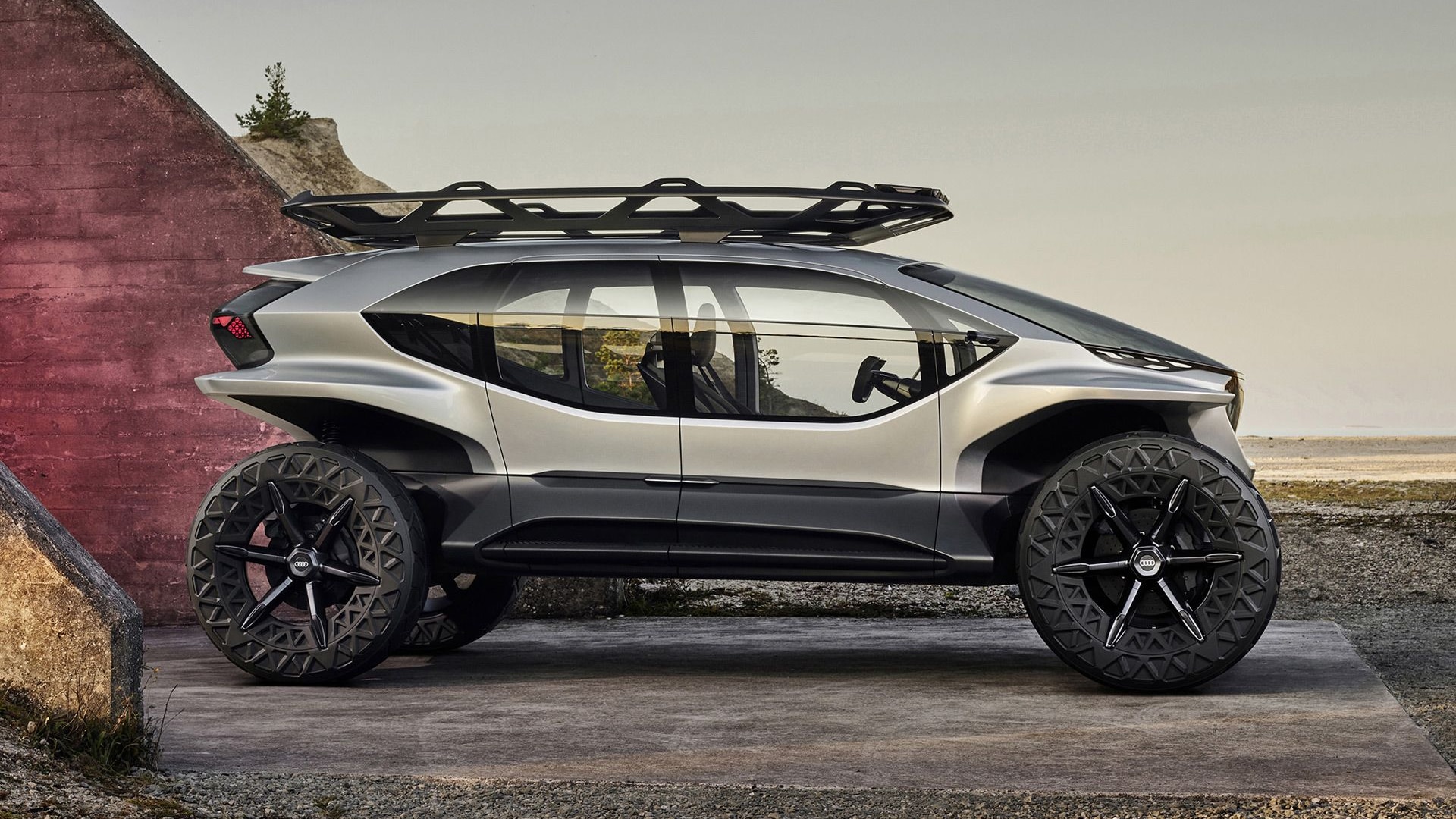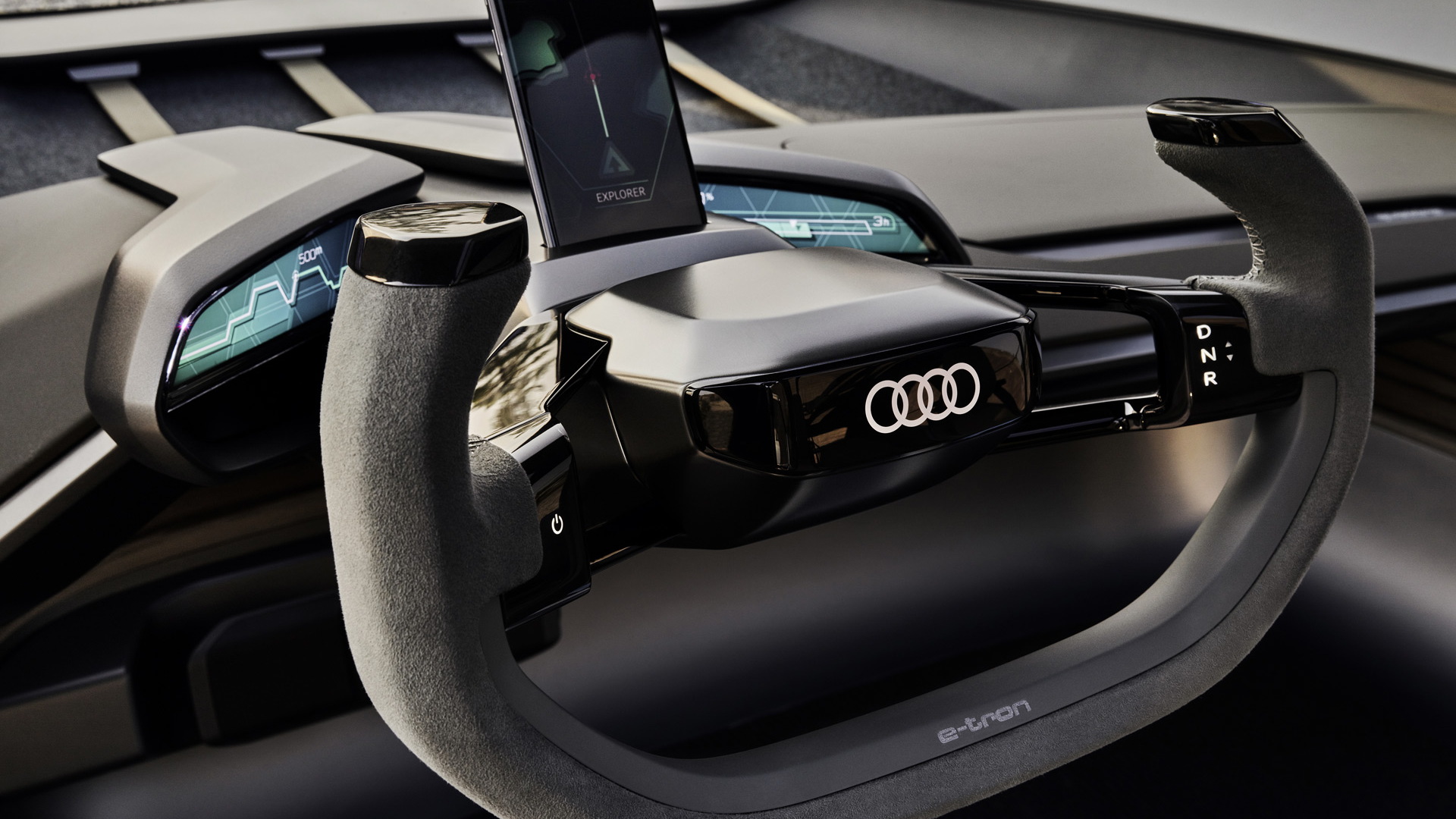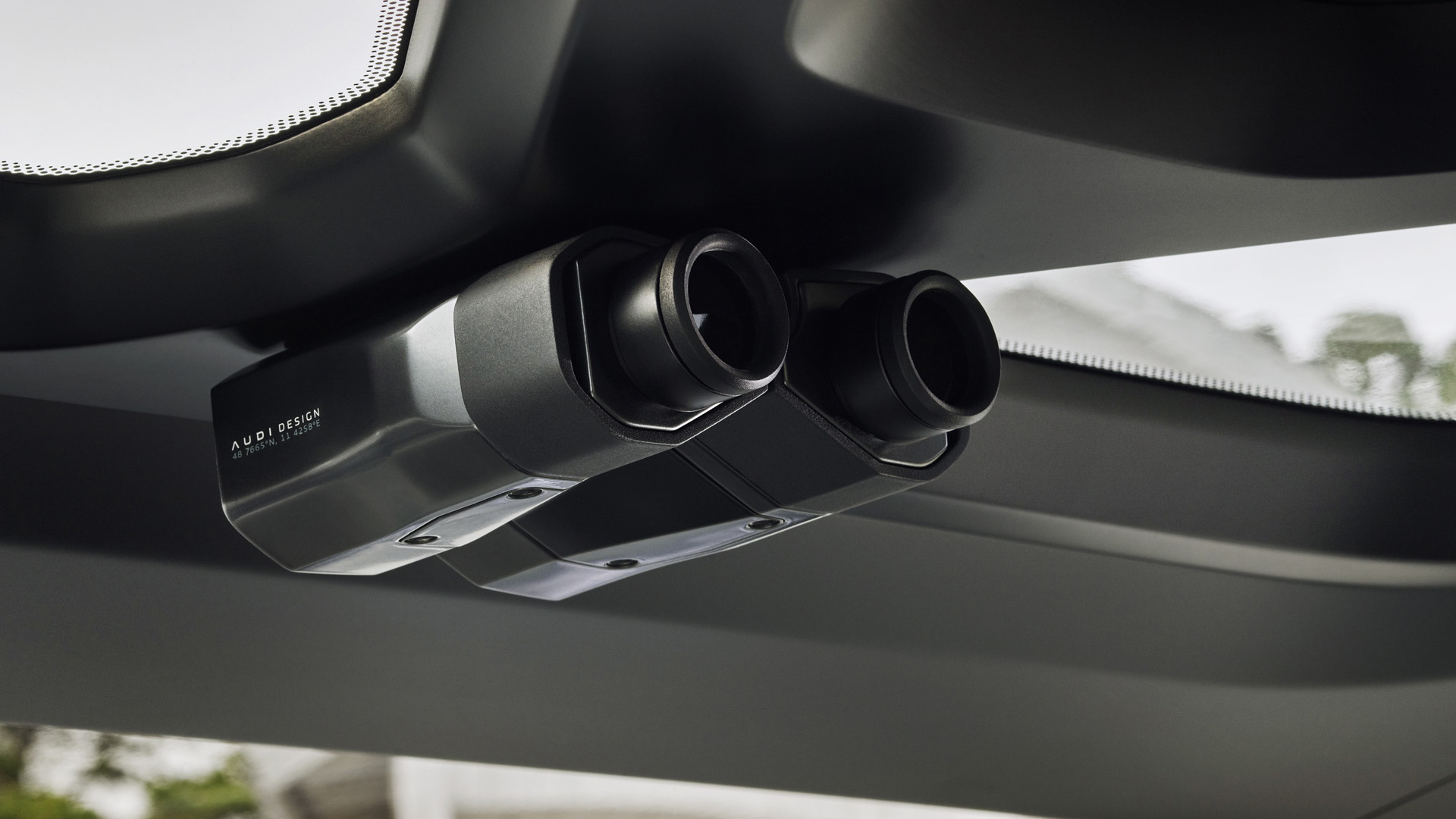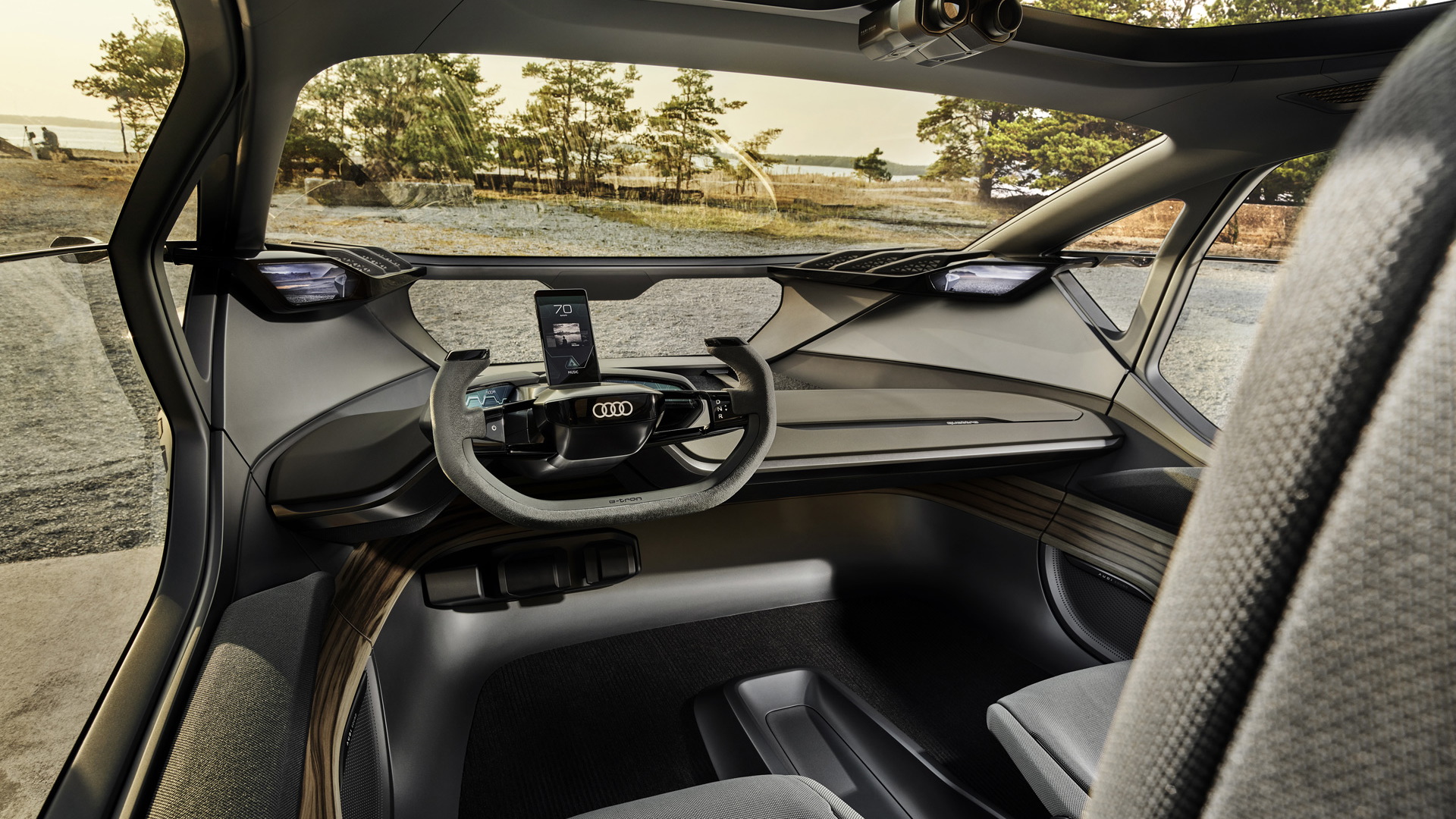Earlier this week at the Frankfurt auto show, Audi revealed a strikingly different adventure-vehicle concept car that’s designed to show, according to the brand, “a comprehensive concept for sustainable mobility off the beaten track.”
The AI:Trail completes a quartet of concepts with similarly colon-punctuated names—the AI:Con, AI:Me, and AI:Race—that show how the German luxury brand can pull autonomous-driving modes and all-electric powertrains into vehicles for almost any kind of automotive lifestyle.
It’s an important issue to address. With just a few exceptions, the electric cars of the past decade conform into a surprisingly homogenous set. They’re far from representative of the real potential of going fully electric—that it allows a lot more flexibility for vehicles to be strikingly different and varied in design versus models with a combustion engine.
The AI:Trail has four electric motors—not in-wheel motors—summing to 435 horsepower and 738 pound-feet of torque, and what it calls “ample battery capacity” bringing a driving range of up to 311 miles based on the European WLTP cycle.
For on-road driving, the AI:Trail has level 4 automated driving capability—meaning that it has traditional controls but in specific conditions can take over responsibility from the driver.
Audi promises confident crawling up off-road trails, and its gearing of the motor systems was chosen to deliver strong wheel torque in off-roading. It underscores that its development “was not about achieving remarkably quick acceleration or hitting breathtaking speeds on the autobahn.”
The AI:Trail, with its huge 22-inch wheels and 33.5-inch big-sidewall tires, is limited to 81 mph. But it can ford up to 19 inches of water and has a ground clearance of 13.4 inches.
Green Car Reports walked around the concept at the show and found that Audi’s own released pictures didn’t entirely do the design justice, especially from the rear. The concept is exceptionally tall—5.5 feet overall—and the “one-box” passenger-cell design and especially sharp creasing around the cabin give it the look of a sci-fi truck brought to life. Its design looks influenced by lunar-rover designs, with a passenger pod over huge wheels.
The concept has a lot of glass around and overhead, allowing an impressive view out for off-roading. Retractable running boards help with access, while an optical-sensor system reads the surface and adjusts the tire pressure accordingly.
The driver interface consists of a yoke instead of a steering wheel, plus a minimal set of buttons. Interior materials include recycled textiles, reprocessed wool, and recycled leather. Second-row seats follow a hammock-like design that helps save weight.
With a mix of high-strength steel, aluminum, and carbon fiber, the AI:Trail weighs less than 3,900 pounds despite what Audi calls a high-capacity battery.
The headlights themselves are actually drones that can detach from the vehicle and go airborne, helping illuminate the way ahead of the vehicle when off-roading, or a surrounding area when parked. While that seems like a silly use of energy and effort, it’s exactly the kind of feature we’d expect to see in an innovation-focused concept vehicle—and it’s cool.
Perhaps the most puzzling piece to ponder now is how all of these concepts fit together into Audi’s future, which so far has been mostly in the form of electric versions of pre-existing formats (like the production E-tron SUV, the upcoming Q4 e-tron, and the e-tron GT sport sedan). The future, if this is any hint, could get a lot more interesting.



















